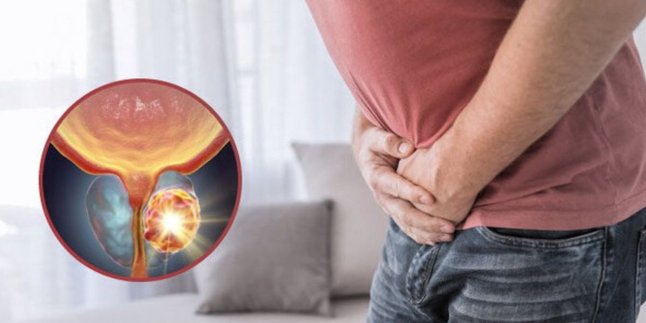Kapanlagi.com - Dizziness is one of the complaints often experienced by many people, and it can be very disruptive to daily routines and diminish quality of life.
This condition can manifest in various forms, ranging from mild to more severe, and often serves as a sign of underlying health issues that need attention.
In this article, we will delve deeper into dizziness, starting from its definition, possible causes, accompanying symptoms, to various ways to overcome it.
Let’s begin by understanding what is meant by dizziness, cited from Kapanlagi.com from various sources, Tuesday(14/1/2025).
1. Symptoms of Dizziness
2. Diagnosis of Dizziness
3. Medical Treatment for Dizziness
Dizziness can present with various symptoms that differ for each individual, and it is important to recognize these signs to determine when medical attention is needed.
Common symptoms accompanying dizziness include a spinning sensation (vertigo), imbalance, nausea, vomiting, cold sweats, blurred or double vision, and ringing in the ears.
Other symptoms that may occur are headaches, weakness, difficulty concentrating, and changes in heart rate. However, if dizziness is accompanied by serious symptoms such as loss of consciousness, difficulty speaking, or severe headaches, seek medical assistance immediately.
Understanding these symptoms is crucial for determining the cause and severity of dizziness as well as when to consult a doctor.
4. 15 Natural Ways to Relieve Dizziness
Diagnosing dizziness involves a series of steps by medical professionals to identify the cause of the patient's discomfort. The process begins with an anamnesis to gather information about the symptoms and triggers of dizziness.
Physical examination, including review of the ears, nose, throat, as well as neurological tests, becomes important. Balance and coordination tests, such as Romberg and tandem gait, are also performed.
If necessary, the doctor may conduct special tests and imaging such as CT scans or MRIs to detect serious issues. Cardiovascular evaluation is also essential to ensure heart health.
Any information from the patient helps the doctor formulate an accurate diagnosis, leading to effective treatment and healthier lifestyle changes.
5. Dizziness Prevention Steps
Medical treatment for dizziness depends on the cause. After diagnosis, the doctor designs an appropriate treatment plan, which may include antihistamines for vertigo, antiemetics for nausea, or triptans for migraines.
Diuretics may help with Meniere's disease, while vestibular therapy such as Epley exercises can also be beneficial. Specific treatments like antibiotics or iron supplements may be necessary for ear infections or anemia.
For severe cases, procedures such as steroid injections or surgery may be considered. Psychological approaches such as cognitive-behavioral therapy are also important if the dizziness is related to anxiety. Good communication with the doctor is crucial for optimal care.
6. Lifestyle Changes to Reduce Dizziness
Here is a list of natural ways that can help relieve dizziness:
1. Adequate Hydration: Drink plenty of water regularly, avoid caffeine and alcohol.
2. Sufficient Sleep: Ensure you get quality sleep.
3. Rest in a Quiet Place: Find a quiet place to rest when dizziness strikes.
4. Deep Breathing Techniques: Take deep breaths and exhale slowly to reduce stress.
5. Cold or Warm Compress: Use a cold compress on your forehead or a warm compress on your neck.
6. Light Massage: Gently massage your temples and forehead to relieve tension.
7. Aromatherapy: Use essential oils like lavender for calming effects.
8. Slow Head Movements: Move your head slowly to avoid worsening dizziness.
9. Consume Ginger: Ginger can help reduce nausea often associated with dizziness.
10. Acupressure: Apply pressure to specific points to relieve dizziness.
11. Avoid Triggers: Identify and avoid factors that may worsen dizziness.
12. Light Exercise: Engage in light physical activity to improve circulation.
13. Meditation: Take time to meditate to calm the mind.
14. Magnesium-Rich Foods: Consume foods that contain magnesium, such as nuts and green vegetables.
15.Visualization Technique: Imagine a peaceful place to help calm the mind when feeling dizzy.
If dizziness persists or is accompanied by other symptoms, consult a medical professional immediately. A combination of medical treatment and natural methods often yields the best results.
7. When to Consult a Doctor
Preventing dizziness is easier than treating it. Some simple preventive steps can reduce the frequency and intensity of dizziness.
First, stay hydrated by drinking at least 8 glasses of water a day, especially in hot weather or after exercising.
Second, consume a balanced diet with enough nutrients, avoiding trigger foods such as those containing MSG or overly sweet.
Stress management through meditation or yoga and regular sleep is also important.
Exercise for at least 30 minutes a day, pay attention to your posture, and limit caffeine and alcohol intake.
Avoid sudden position changes, have regular eye check-ups, control blood pressure, and manage allergies.
By consistently applying these tips, the risk of dizziness can be reduced. If dizziness persists, consult a healthcare professional.
(kpl/rao)
Disclaimer: This translation from Bahasa Indonesia to English has been generated by Artificial Intelligence.












